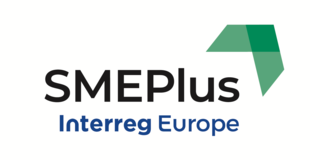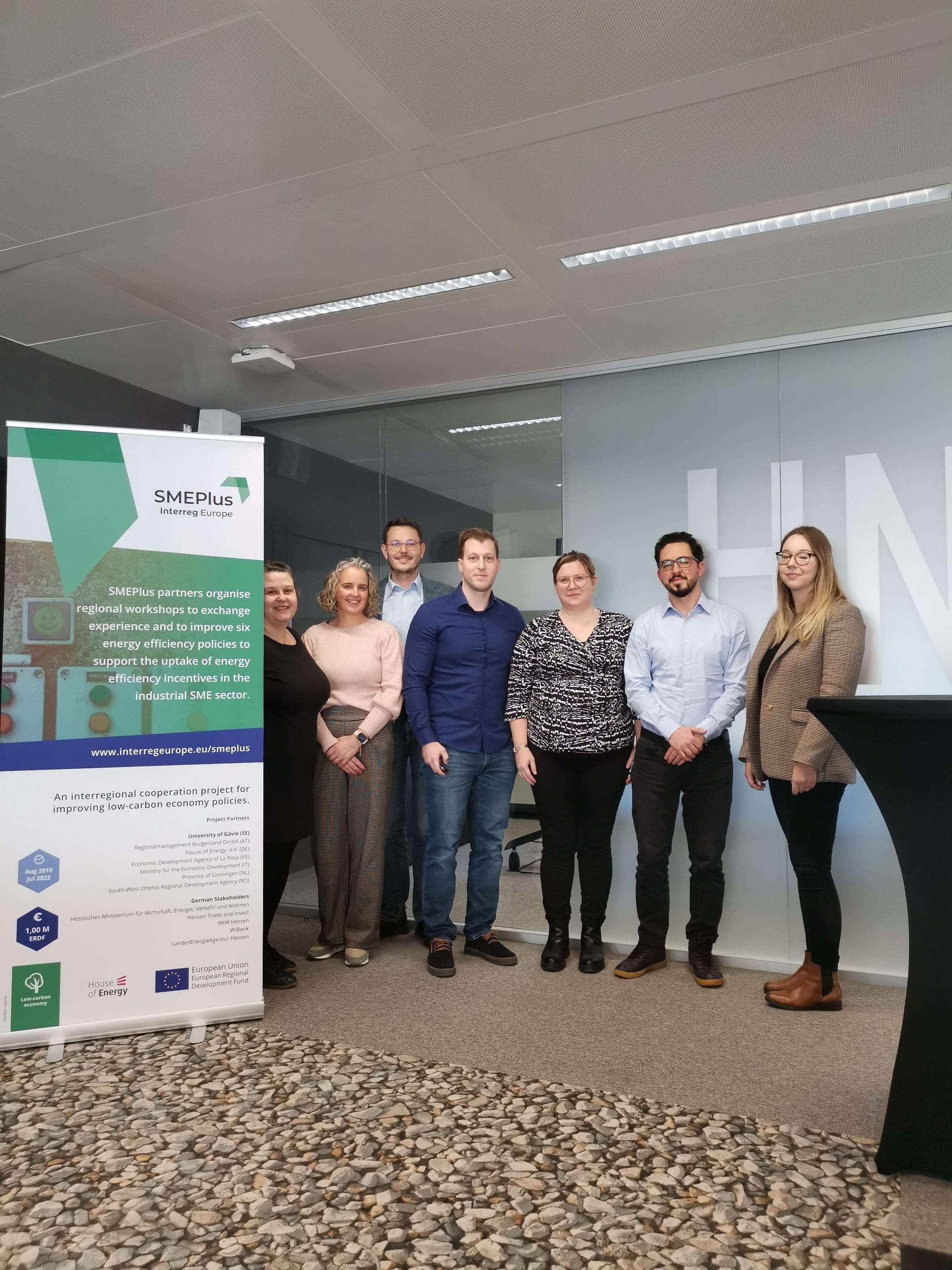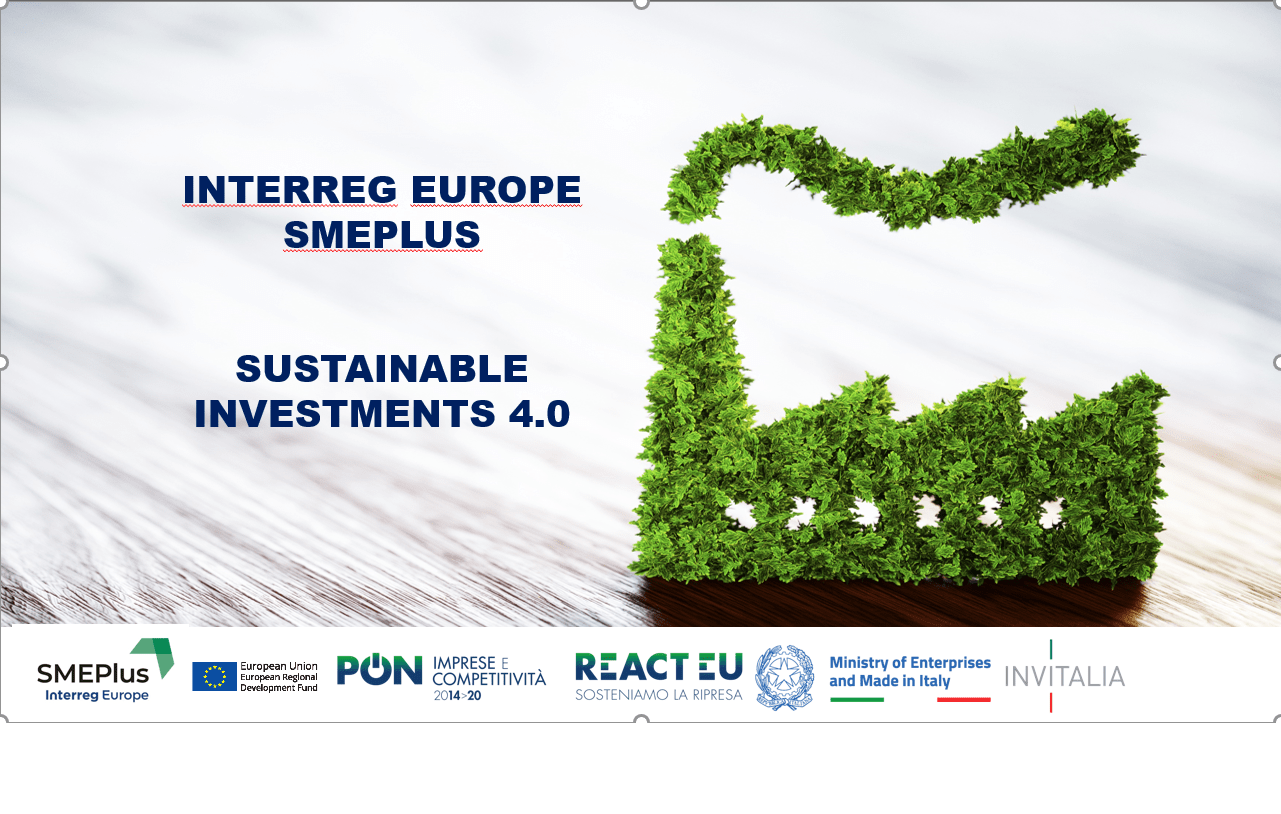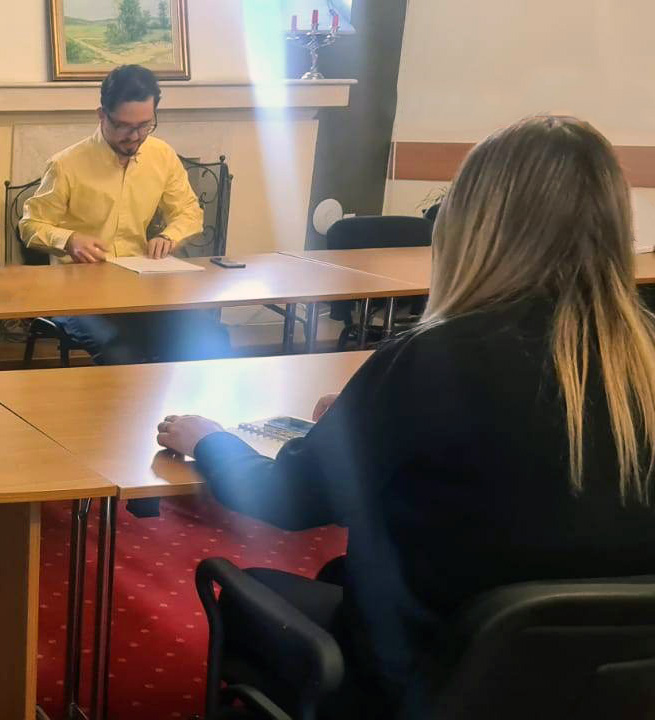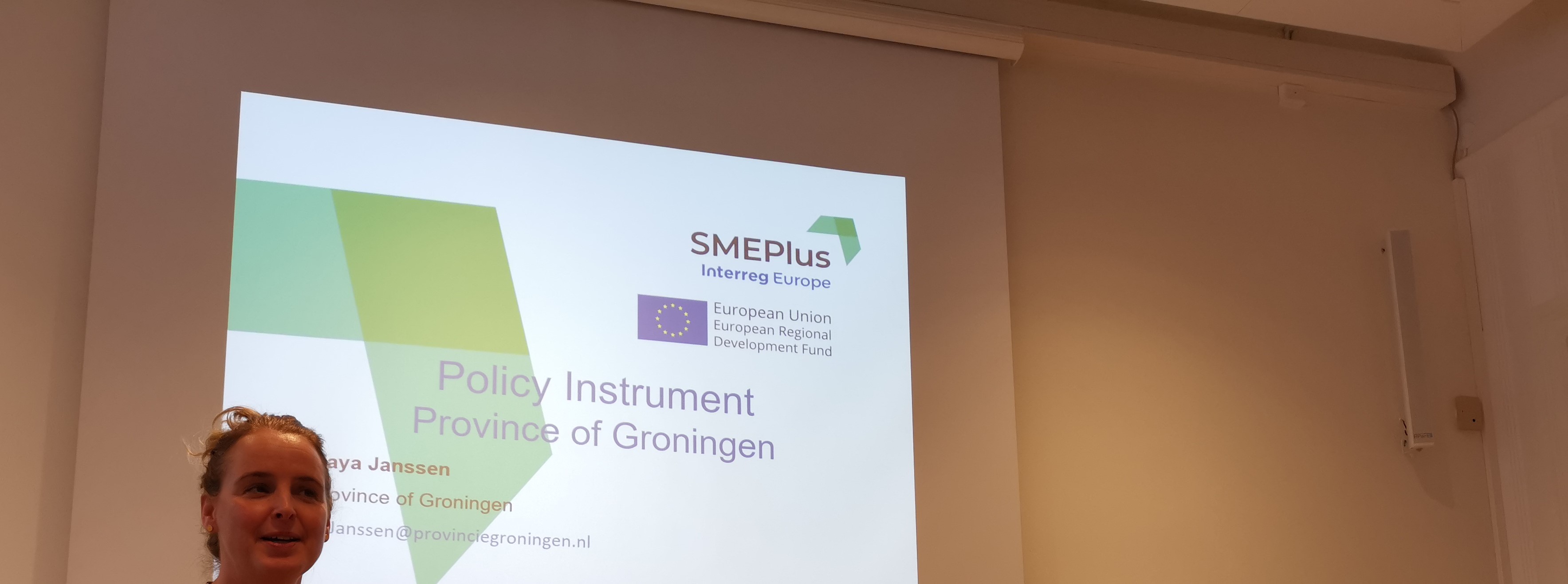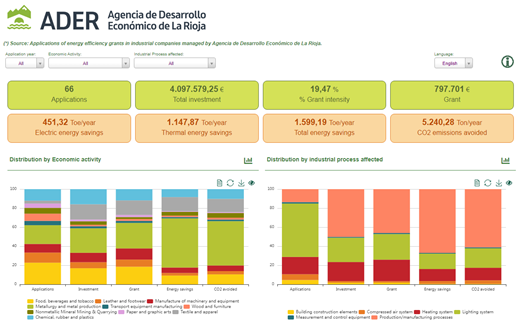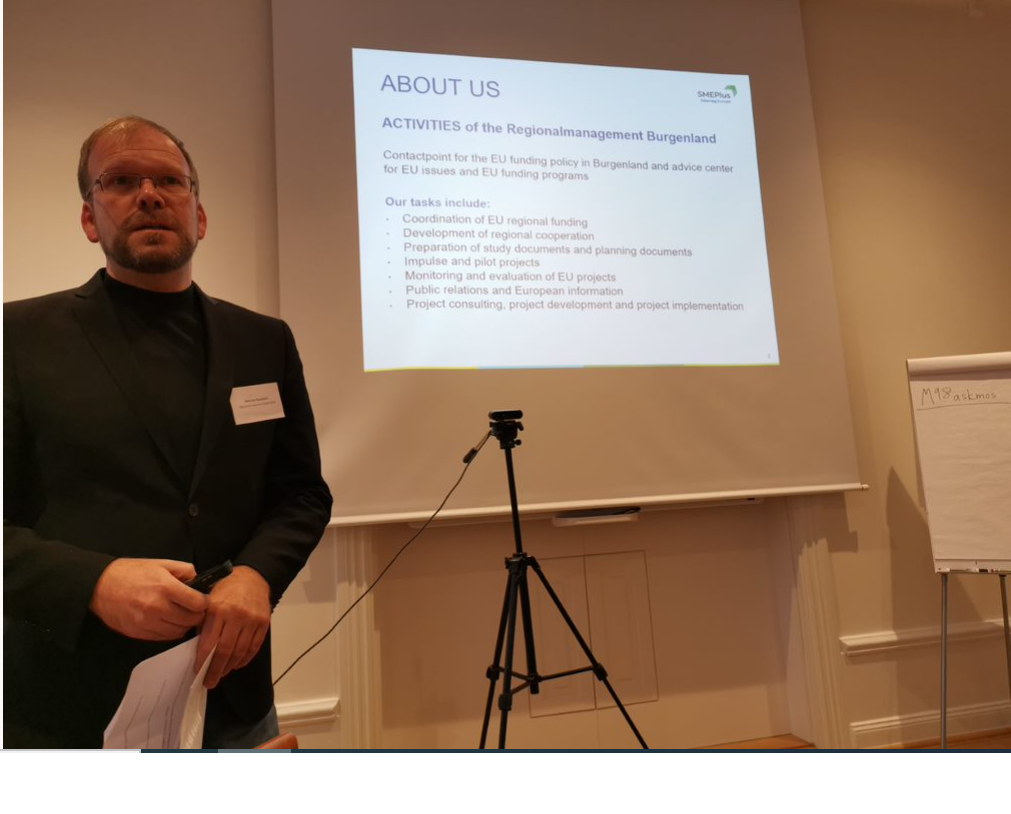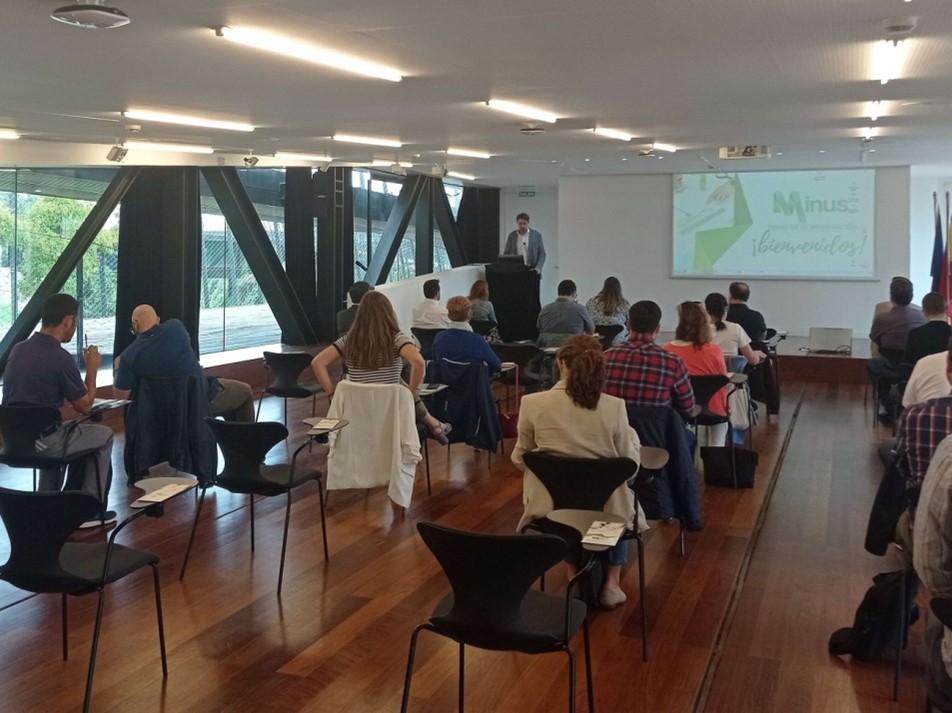Ovidiu Balan is the head of project monitoring and verification department from the Intermediate Body for Regional Operational Programme (ROP) 2014-2020 in the South-West Oltenia Region. The Intermediate Body manages the ROP and develops the regional development strategy. One of the Programme priorities is the improvement of the competitiveness of the SMEs, including the encouragement of SMEs to adopt energy efficiency measures and/or use of Renewable Energy Sources (RES). |
|
Mihai Marian, regional implementation manager from the South-West Oltenia Regional Development Agency, interviewed Ovidiu about the regional energy efficiency policy measures related to industrial SMEs.
Mihai Marian, South-West Oltenia Regional Development Agency: Why is energy saving important for industrial SMEs?
Ovidiu Balan, Intermediate Body for the Regional Operational Program: Taking into consideration the EU goal of reducing the CO2 emissions by 60% by 2030, we think that energy saving will play an important role in SMEs and will have a twofold impact on them, as it will:
- contribute to reduced costs and improved productivity, and
- help increase the competitiveness and brand image.
Although nowadays SMEs don’t pay too much attention to this aspect, we think that this will change in the future because of the awareness of the direct and non-direct benefits that will be generated after implementing energy efficiency measures.
Mihai: Why is energy saving important for your region?
Ovidiu: The South-West Oltenia Region has an industrial profile. The energy saving benefits will represent a major factor in its future development. Even if the legislative framework is settled at national level with law enforcement only for big companies, still, SMEs receive aid especially through financing schemes and subsidies that support new investment measures for energy efficiency and use of RES. Also, the support provided to SMEs is complementary to other financing measures that target increased energy efficiency in residential and public buildings, public lighting and transport infrastructure for sustainable urban mobility.
Mihai: What are the benefits of energy saving, apart from reduced energy costs?
Ovidiu: The main are increased productivity, reduced interval maintenance of the production lines, higher lifetime of equipment, improved brand image of the SME and less CO2 emissions.
Mihai: Does energy efficiency has an impact on the public image of an SME?
Ovidiu: Yes, by targeting the environmentally neutral impact, the SME acknowledge an environmentally friendly image that will be associated with its products and can increase its sales.
Mihai: In your opinion, are good practices transferable between the regions and countries?
Ovidiu: The exchange of experience and know-how plays a key role, especially for less developed regions. They can “import” good practices successfully tested and implemented in other regions. Of course, it is necessary to adapt the practices to local legislative, business and cultural environment.
Mihai: What are the most important incentives for SMEs to invest in the energy efficiency measures?
Ovidiu: Most likely the better rated ones are the grant schemes or subsidies that are non-refundable. Still, in order to have a real impact we think that the expected results related to how much the taken measures have improved the SME energy efficiency, need to use some instruments & tools to help to better quantify the expected results. In our case the most important incentives for SMEs regarding energy efficiency measures are the one offered through the Regional Operational Program 2014-2020.
Mihai: Which existing energy policies towards SMEs in your region are, in your opinion, the most efficient?
Ovidiu: In the South-West Oltenia Region there is no direct legal framework that supports SMEs and helps them identify & implement energy efficiency measures such as energy audits, energy management, trainings for energy efficiency etc. The most efficient instrument is the Regional Operational Programme 2014-2020, Priority Axis 2 which improves the competitiveness of SMEs, by:
- upgrading/purchasing of specific energy-saving installations / equipment as well as systems that use renewable (alternative) energy sources,
- optimization of operating installations and technological flows; minimizing waste and increasing level of waste recovery and recycling, and
- using renewable energy sources: solar, wind and geothermal energy, hydropower, biomass.
Mihai: Which policies from other regions could be implemented in your region?
Ovidiu: E.g. a legal framework at national or regional level that can support SMEs in taking energy efficiency measures. But this would be a major structural policy change that needs to be established at national level. Still, we think that in the actual context an improvement for the monitoring phase of the investment measures could be useful.
